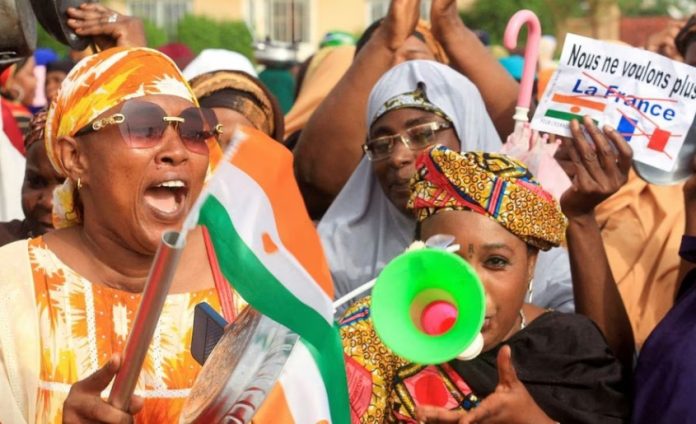The military says French troops are leaving Niger after overthrowing the president by rebellious soldiers two months ago.
France has not provided information on the number of troops or where they are going.
On Tuesday, Nigerians saw footage on state television of a convoy of aircraft leaving a base in Ouallam in the north of the country for neighbouring Chad in the east. French military transport planes were also shown taking off from an airbase in the capital Niamey.
The withdrawal of French troops came after French President Emmanuel Macron announced that France was ending its military presence in Niger. France also said it was expelling its ambassador from the country in the wake of the coup that removed President Mohamed Bazoum from power at the end of July. Some 1,500 French troops are working in Niger, training its military and conducting joint operations.
Since coming to power, Niger’s military leaders have exploited anti-French sentiment among the population against the former colonial ruler. They also said that the withdrawal of French troops was a new step towards the country’s sovereignty.
Washington is on record as saying that Mr Bazoom’s overthrow was a coup. The US suspended hundreds of millions of dollars in aid, as well as military assistance and training.
Most Western countries saw Niger as the last country in Africa’s Sahel region – the vast expanse south of the Sahara Desert – with which to collaborate to fight back against a growing jihadist insurgency linked to al-Qaida and the so-called Islamic State (IS).
French troops have disrupted and restricted the activities of military regimes in neighbouring Mali and Burkina Faso, which have seen a surge in attacks. Military analysts believe the withdrawal of French troops will lead to a drop in security that could be exploited by extremists. Rida Lyammouri, senior fellow at the Policy Centre for the New South, a Moroccan-based think tank, said:
“French forces might not have defeated these groups, but at least disrupted and limited their activities. With the French out of the picture, these would likely expand to areas where French forces were providing support to Nigerien forces, especially on the borders with Mali and Burkina Faso.”
The level of violence jumped significantly in the immediate aftermath of the coup. According to the Armed Conflict Location & Event Data Project, in the month after the junta came to power, the level of violence associated primarily with extremists increased by more than 40 per cent.
Jihadist attacks on civilians quadrupled in August compared to the previous month, and attacks on security forces increased in the Tillaberi region, killing at least 40 soldiers.
It is the fourth time in under two years that French troops were forced out of a former African colony, coming after Mali, the Central African Republic and Burkina Faso.
The US still has about 1,100 military personnel in the country but after Macron’s announcement said last month it would “evaluate” its next steps.
